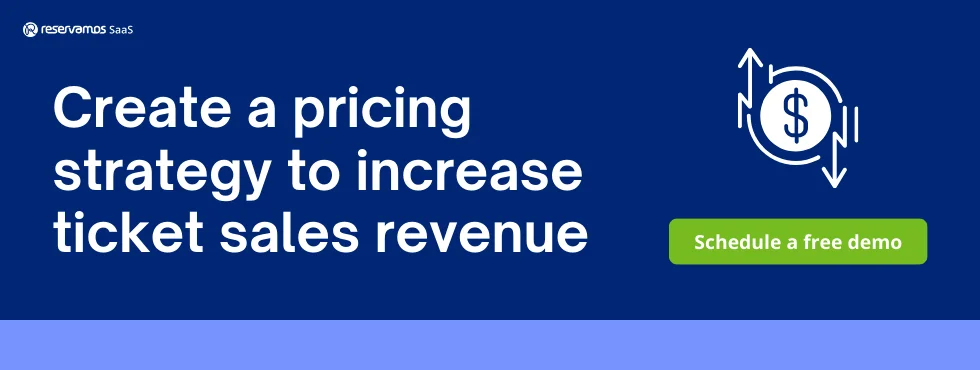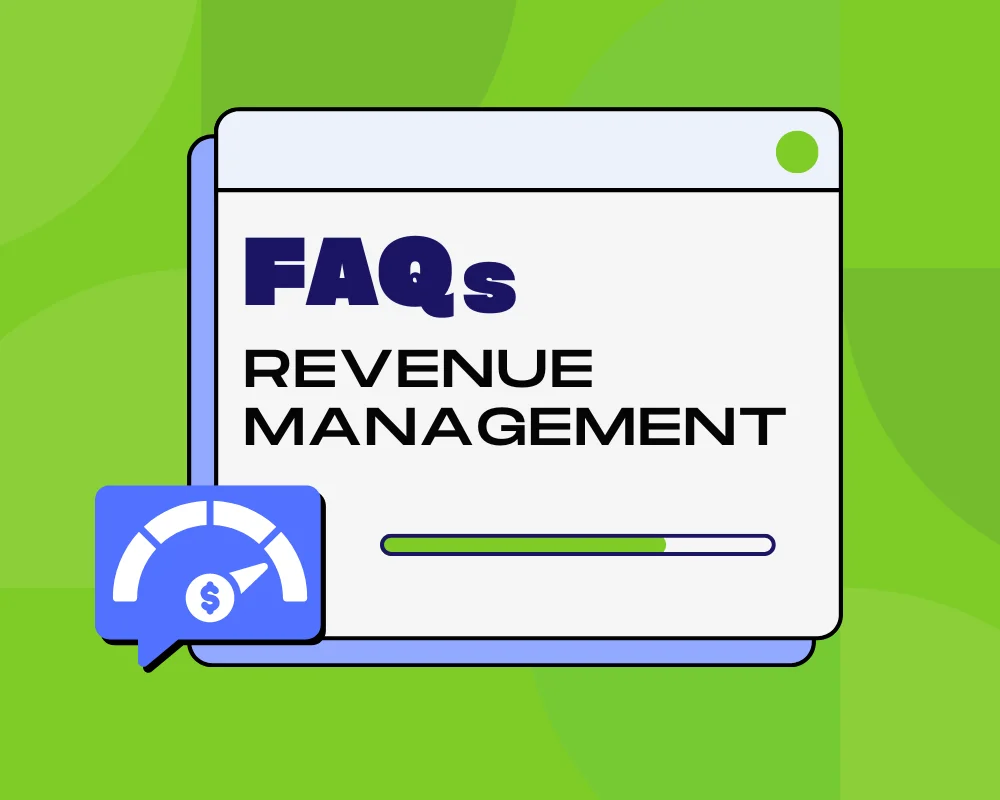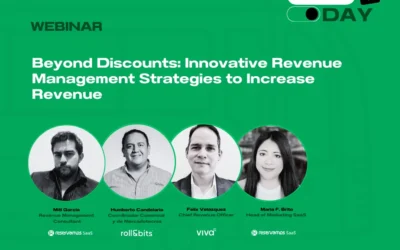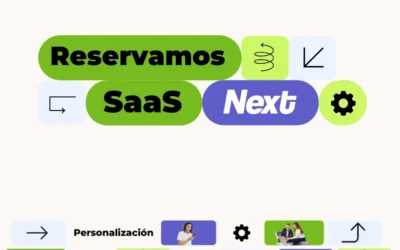We answer your questions about Revenue Management so that you can learn how to optimize your revenues and maximize profits in a competitive industry.
In such a competitive industry, revenue optimization is an undisputed priority for any business. In this context, Revenue Management emerges as a fundamental strategy to maximize profits and ensure financial sustainability.
However, this concept may be unfamiliar or confusing for many. That is why this text aims to address the most frequently asked questions about Revenue Management, offering a clear and concise overview of its fundamentals, applications, and benefits.
For this, Camilla Brugali, Revenue Management Product Manager for Reservamos SaaS, answers the most frequently asked questions, from basic definitions to a strategic vision of revenue management, explaining how this discipline can transform the bus sector and lead it to success in a dynamic and changing industry.
1. What is Revenue Management?
Revenue Management is a strategy that aims to maximize a company’s total revenue.
Having a Revenue Management strategy consists of using your company’s sales performance data, data from your main competitors, and other market variables to predict consumer demand by optimizing price.
Price optimization is based on dynamic pricing, which is predicted based on the predictability that data will provide from the customer’s perception of the value and availability of the offer at a given time.
Revenue Management is the ideal practice, especially for industries that have a perishable product, high fluctuations in demand, products that consumers may want to buy in advance, and, mainly, competitors that charge lower prices than the market average (low-cost competitors).
Moreover, in the current market dynamics, where the same product is sold in several sales channels, whether physical points of sale, eCommerce, or OTAs Marketplaces, Revenue Management is the strategy that can help identify the right price for each sales channel and, with the support of technology, do it massively.
In short, Revenue Management can be summarized in the following phrase: sell the product or service at the right time, to the right customer, at the right price.
2. What is the main objective of Revenue Management in the bus sector?
The main objective of Revenue Management is always to maximize total revenue, considering factors such as demand, capacity, and costs.
Based on data capture and analysis, Revenue Management aims to anticipate customer behavior, adapt the prices of products or services, and manage availability to optimize revenue.
In other words, historical analyses of demand and profitability are expected to support decision-making strategically and massively, avoiding premises that do not take into account internal and external data.
3. How do they provide accurate and agile answers on market behavior to anticipate pricing and inventory strategy?
Technology plays a fundamental role. A Revenue Management system, such as Reservamos SaaS, allows massive and automated monitoring of what competitors are doing and the company’s sales performance. With the data collected, the Revenue Management system allows visualization of indicators and metrics of the company and its competitors.
The simplified visualization of data in one place allows the company to act assertively and nimbly, based on accurate information.
On the other hand, technology can help even more. The Revenue Management system, through technologies such as Artificial Intelligence and machine learning, learns from the data. That is, the system can support you with alerts and suggestions for price changes so that the company does not miss any opportunity.
4. Can lowering or raising prices represent a loss for bus companies?
No. The Revenue Management strategy consists of working with dynamic pricing (raising prices or lowering prices). This pricing flexibility is based on supply and demand for a given product or service. In other words, increasing prices when demand increases and reducing prices when demand is low.
Price variation is the basis for understanding the customer’s perception of value and propensity to buy. Let’s not forget that different people are willing to pay different prices for the same product; that is where the opportunity lies.
Every price change suggested by the Revenue Management practice takes into account the main objective: to maximize total revenue. In other words, lowering a price at a given moment does not represent a loss, since it is an isolated event within a broader pricing strategy, with price decreases and increases.
For example, dynamic pricing, for a product that can be purchased in advance, is a great opportunity to attract new customers and generate a sense of urgency to complete the purchase.
5. How does Revenue Management help to give the right price for a bus ticket?
The Revenue Management strategy helps by suggesting the best price for a given customer at a given time. This price is set based on current demand and market conditions.
With this, we can understand that the right price is given considering a deep analysis of historical data and real-time competitor data.
6. Does a bus company require a specialized team in Revenue Management for the implementation of the Revenue Management System?
A large or specialized team is not required to implement a Revenue Management system. However, it is necessary to have a person responsible for working on the system and who can act on prices.
To ensure the execution of a Revenue Management strategy, daily monitoring is necessary. Revenue management is a daily exercise. It is necessary to monitor the company’s sales performance and the behavior of competitors, to find opportunities.
This can be done with the support of the Revenue Management System, which will do it automatically and alert on opportunities.
On the other hand, it will not work to implement a system without someone responsible for observing price change opportunities and acting accordingly. The person responsible for pricing in the company must have total autonomy for continuous price changes because that is the basis of Revenue Management practice.
7. Are there risks in implementing a dynamic pricing strategy in a bus company?
The success of Revenue Management is based on revenue maximization. Given this, there are no risks for a company when working with dynamic pricing, since prices in a Revenue Management practice are determined through historical data and market data. These are decisions based on data intelligence and predictive mathematics, it is a science.
8. What does the Revenue Management System solution consist of?
The Reservamos SaaS Revenue Management System consists of two modules: Competitor Monitor and Revenue Management.
The Competitor Monitor module allows companies to monitor and receive alerts on the price and occupancy behavior of their main competitors.
The Revenue Management module allows companies to set the optimal price for all their inventory and through all sales channels.
9. Is there any implementation required to adopt the Revenue Management System?
For the Revenue Management System to work we need to integrate it into your sales channels and inventory management system and be able to effectively change the price of the tickets, depending on the initial configuration. We guide our partners through the whole process and use of the tool.
For the Competitor Monitor module, there is no need for any integration, you simply need to inform the competitors you want to monitor.
For the Revenue Management module, integration is required, via API, with the company’s inventory system and sales channels. In this way, the Revenue Management System will be able to modify prices automatically and monitor the results of each pricing strategy executed.
10. What is the best season to test the Revenue Management System to get better data and results?
Today is the best time to start working with the Revenue Management System. This system will help your company maximize revenue through dynamic pricing.
Whether in a period of high demand or not, Reservamos SaaS is ready to support your company in the implementation of the Revenue Management System.
Throughout this text, we have explored the most frequently asked questions about Revenue Management by addressing questions about implementation, benefits, and potential risks.
Also, it is important to reiterate the need for technological tools such as the Reservamos SaaS Revenue Management System, which facilitates informed decision-making and the effective execution of Revenue Management strategies.
In short, Revenue Management emerges as a useful tool for maximizing revenue and ensuring financial sustainability in an increasingly dynamic and demanding business world. Adopting this practice is not only an option but a necessity for companies that aspire to stand out and thrive in today’s competitive landscape.





